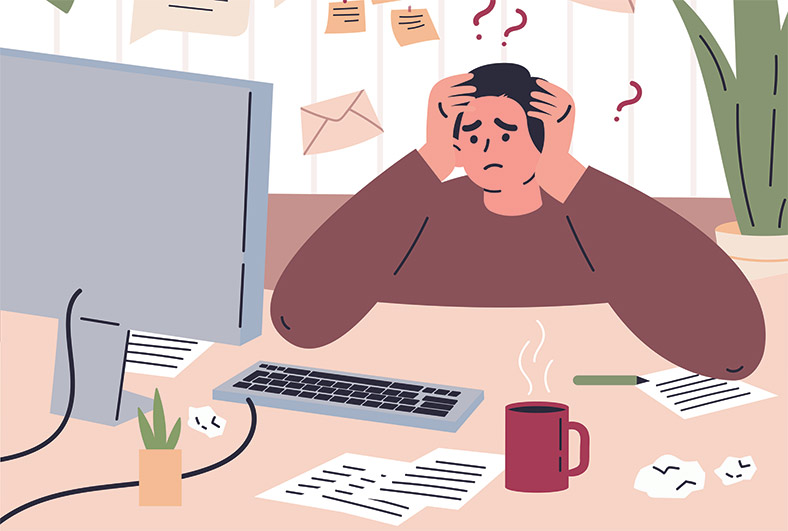Blog / Experts / Journalists
Resources for journalists: Freelance Feels

‘Isolation, imposter syndrome and all the ‘usual’ mental health challenges of freelancing are exacerbated at the moment,’ says Jenny Stallard, who well knows the strains that come with the many joys of freelance journalism, particularly in 2020. After facing some of her own mental health challenges as a freelancer, Jenny founded Freelance Feels last year for fellow ‘humans who work for themselves’.
If you’re feeling the pressures of freelancing at the moment, read on for how Jenny handles difficult moments, issues the community are battling right now and what commissioning editors can do to expand their networks and amplify the words of new writers.
What inspired you to launch Freelance Feels?
Freelance Feels was born out of my own challenges in freelance life. In early 2019 I was feeling really despondent about freelance life. I knew I wanted to be self-employed but work was scarce and I felt like a total failure. I would often get tearful, wondering if I was the only one. I felt lost, confused and angry – I’d worked hard to be freelance; why was it working for everyone else but me?! That’s how it felt, anyway. I began to write blog posts about it, and the idea for Freelance Feels began.
What are the main challenges freelancers in your community are concerned about at the moment?
Finances! Finances, generating income, competing in an ever-growing, ever-busy space. I have read that the number of freelancers has gone down because of COVID-19 (people leaving self-employment), however it feels like a very busy space to me, still. Facebook groups and forums are gaining members by the day. We all worry about money anyway but now the worry isn’t just generating income, it’s whether the client will be able to pay in the current climate. We also face huge challenges to our mental health. The pressures of generating our own income are tough, especially for those with families who rely on them. Isolation, imposter syndrome and all the ‘usual’ mental health challenges of freelancing are exacerbated at the moment.
Quick piece of advice for those who may be struggling with freelance life?
Lots of my podcast guests have said they do this, so I’m sharing it – keep notes and lists of successes. An email folder of nice emails, or notes on your phone, screen grabs of nice things people have said to you. Then you can check back on them when things seem more hopeless.
What’s your favourite thing about freelancing?
The freedom! I love not having to ask if I can take a certain day off (Christmas is a biggie, right?). I like that I can get up when I fancy (I often check emails and social in bed with a cuppa before I get up ‘properly’) and love not checking the clock on my ‘lunch break’.
What advice would you give to commissioning editors looking to diversify their freelance connections?
In general, first of all, I’d say, please reply! I think many comm eds only know the ghosting feeling once they go freelance, but please, please just say ‘not for us’ if you’re not keen. Then the writer can take the idea elsewhere and your inbox is less full, too. With diversification, in particular, I would say one step before reply is ‘read it’. I’ve been a commissioning editor and I know you get tons of emails – but that’s the job! So, read those pitches, see what the person is offering, read their name and see if it’s one you recognise or one that you should be working with. Don’t dismiss it too quickly. I’d also say follow a diverse group of writers on social media; see what they are saying and approach them if you want their voices in your pages. Consider graduates looking for their first commission – they are often THE voices we need to hear right now.
On the flip side, freelancers need to be clear and concise in pitches – say if you are a voice from a marginalised community, someone with a unique experience, then say why YOU should be writing the piece, why your voice would be a good fit for that site.
Find out more about Jenny Stallard and Freelance Feels at Freelancefeels.com.
For getting relevant contributions for commissions you’re currently working on, send a request to UK PRs with the Journalist Enquiry Service (it’s free for journalists).